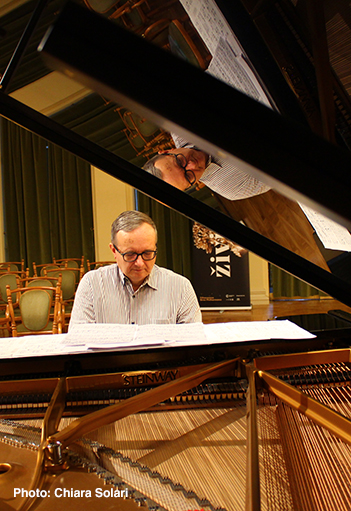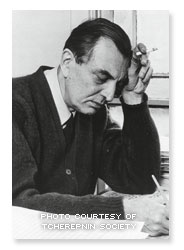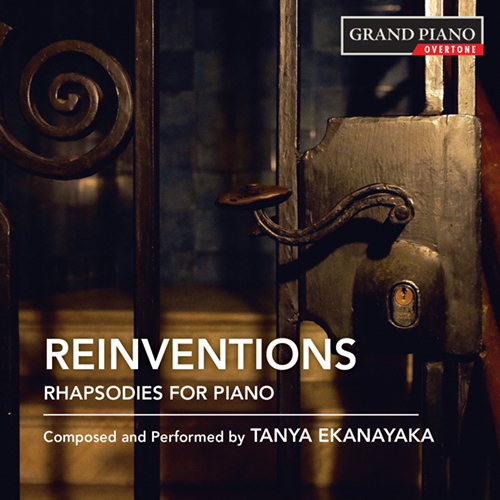EKANAYAKA, T.: Reinventions – Rhapsodies for Piano (Ekanayaka)
Tanya Ekanayaka is one of Sri Lanka’s foremost pianists and an internationally acclaimed composer. Her ‘deeply autobiographical’ piano compositions, or reinventions, introduce a novel and hybrid musical genre that takes a wide variety of Sri Lankan melodies—ancient, folk and popular—and blends them with motifs inspired by the tonal centres of established classical compositions by Bach, Beethoven, Ravel and others.

|
Oops! Something went wrong!
The application has encountered an unhandled error.
Our technical staff have been automatically notified and will be looking into this with the utmost urgency.
|

Giorgio Koukl is a highly accomplished pianist known for his expressive performances, exceptional technique and profound musicality. With a passion for both traditional repertoire and contemporary works, Koukl continues to captivate audiences worldwide through his performances and recordings.
A renowned specialists in Parisian music of the 1920s and ‘silver age’ composers from St Petersburg, he is also considered one of the world’s leading interpreters of Martinů’s piano music, having recorded that composer’s complete solo piano music, together with five albums of Martinů’s vocal music and two albums of his piano concertos for Naxos. His discography also includes an acclaimed series of the complete solo piano music of Alexander Tcherepnin, and lauded recordings of works by Vítězslava Kaprálová, Paul Le Flem (awarded a Diapason d’Or), Carl Maria von Weber, Johannes Brahms and Alexandre Tansman. He has also made world première recordings of works by Witold Lutosławski, Arthur Lourié and Tibor Harsányi.
Koukl performes extensively throughout Europe, North America and Asia, and collaborates with renowned orchestras and conductors in solo performances and chamber music concerts.

The son of Nikolay Tcherepnin, the Russian-born pianist, conductor and composer Alexander Tcherepnin moved with his father to Tbilisi in 1918 and in 1921 to Paris. His subsequent career took him to China and Japan; then, in the years after the war, he spent a period in America.
Orchestral Music
Tcherepnin was always open to experiment in composition. Although he remained fundamentally Russian in his writing, he devised a new synthetic scale and made use of the Chinese scale. Married to a Chinese pianist, he wrote six piano concertos and four symphonies, returning to Russian themes in his final Russian Sketches of 1971.































